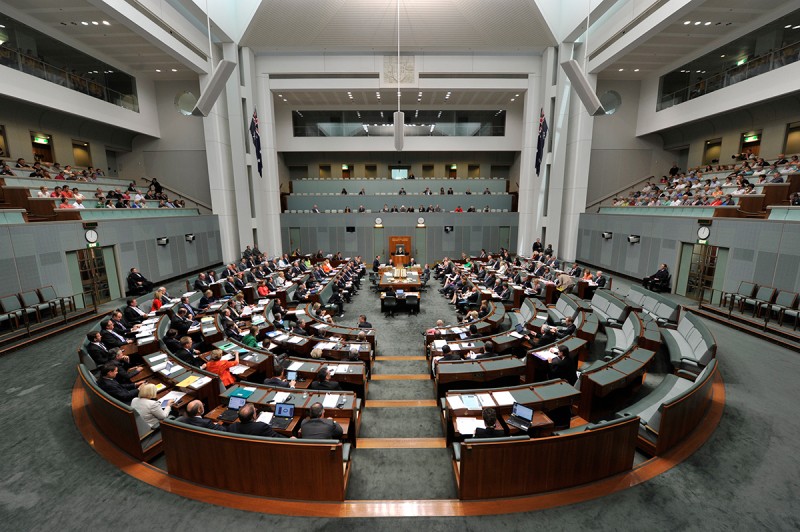Why does the Constitution say money bills have to start in the House and not the Senate?
You're right – this is a rule in the Australian Constitution. Section 53 of the Constitution says that bills – proposed laws – which have to do with money cannot start nor be changed in the Senate. Bills to spend or collect money can only be introduced and changed in the House of Representatives.
The UK Parliament is the origin of this rule. The House of Lords has similar rules about money bills. The idea behind this rule was to make sure that the people, through their elected representatives, have control over how public money is used – not kings or unelected officials.
In Australia, the same logic could be applied. It could be said that stopping the Senate from controlling public spending allows the people (represented by the House of Representatives) to control the money rather than the states (represented by the Senate).
The House of Representatives

DPS Auspic
Description
The House of Representatives is a large room with green furnishings. The seats are arranged in rows around a large central table. There is a large chair at the open end of the U-shaped seats that is elevated above the other chairs where the Speaker sits. Members of the House of Representatives sit in the U-shaped seats. Members of the public and the press sit observing from the balconies above the House.
Permission should be sought from DPS AUSPIC for third-party or commercial uses of this image. To contact DPS AUSPIC email: auspic@aph.gov.au or phone: 02 6277 3342.